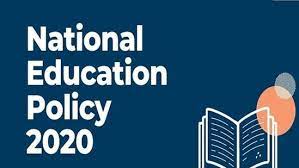
The National Education Policy (NEP) in India marks a significant stride toward transforming the country's educational landscape. Envisioned to shape a holistic, adaptable, and globally competitive education system, the NEP is a comprehensive blueprint for the future of learning in India.
Key Pillars of the NEP:
1. Holistic Education:
The NEP emphasizes holistic education, aiming to nurture not just academic excellence but also critical thinking, creativity, and life skills. It introduces a flexible and multidisciplinary approach, fostering a well-rounded development of students.
2. Foundational Learning:
Recognizing the importance of foundational learning in early childhood, the NEP focuses on the establishment of a strong educational base. The policy proposes the integration of foundational literacy and numeracy skills in the early years of schooling.
3. Multilingualism and Cultural Awareness:
In a diverse nation like India, the NEP promotes multilingualism, recognizing the importance of preserving and celebrating linguistic and cultural diversity. The policy encourages the use of mother tongue or regional languages as a medium of instruction.
4. Flexible Academic Choices:
The NEP introduces a more flexible and student-centric higher education system. It allows students to choose a diverse range of subjects across disciplines, breaking away from the conventional silos of education.
5. Technology Integration:
Embracing the digital era, the NEP emphasizes the integration of technology in education. It envisions the use of online resources, digital libraries, and e-learning platforms to enhance the quality and accessibility of education.
6. Teacher Empowerment:
Recognizing the pivotal role of teachers, the NEP proposes robust measures for their professional development. It encourages continuous learning, training, and the adoption of innovative teaching methods to create a dynamic and effective teaching community.
7. Assessment Reforms:
The NEP recommends a shift in assessment methods, moving away from rote memorization to competency-based assessments. The focus is on evaluating critical thinking, problem-solving abilities, and practical application of knowledge.
Challenges and Opportunities:
While the NEP charts a promising course for the future, it also faces challenges in implementation. Adequate infrastructure, teacher training, and a seamless transition to the new framework are critical areas that require attention. However, these challenges present opportunities for collaborative efforts between the government, educators, and stakeholders to create a vibrant and effective education system.
Conclusion:
The National Education Policy in India heralds a new era in education, emphasizing inclusivity, flexibility, and relevance. As the nation embarks on this transformative journey, the successful implementation of the NEP holds the key to unlocking the full potential of India's youth, preparing them for a dynamic and ever-evolving global landscape.
Image Source: Hindustan Times











Leave your comment